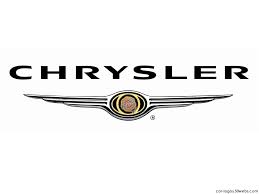Town & Country V6-3.8L VIN L (2006)

Fig. 5 S.A.I. and I.A.
Steering axis inclination is the angle between a true vertical line starting at the center of the tire at the road contact point and a line drawn through the
center of the upper ball joint (or strut) and the lower ball joint (Fig. 5). S.A.I. is built into the vehicle and is not an adjustable angle. If S.A.I. is not
within specifications, a bent or damaged suspension component may be the cause.
INCLUDED ANGLE (I. A.)
Included angle is the sum of the S.A.I. angle plus or minus the camber angle, depending on whether or not the wheel has positive or negative camber
(Fig. 5). If camber is positive, add the camber angle to the S.A.I. angle. If camber is negative, subtract the camber angle from the S.A.I. angle.
Included angle is not adjustable, but can be used to diagnose a frame misalignment or bent suspension component (spindle, strut).
THRUST ANGLE
Fig. 6 Thrust Angle
Thrust angle is the averaged direction the rear wheels are pointing in relation to the vehicle's center line (Fig. 6). The presence of negative or positive
thrust angle causes the rear tires to track improperly to the left or right of the front tires (dog tracking).
^
Negative thrust angle means the rear tires are tracking to the left of the front tires.
^
Positive thrust angle means the rear tires are tracking to the right of the front tires.
Improper tracking can cause undue tire wear, a lead or pull and a crooked steering wheel.
Excessive thrust angle can usually be corrected by adjusting the rear wheel toe so that each wheel has one-half of the total toe measurement.
